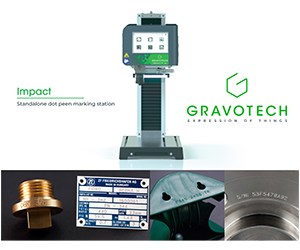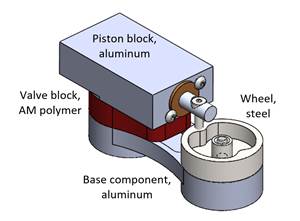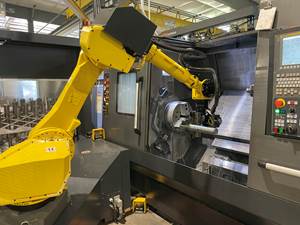The Value of a Job Quoting Checklist for CNC Machine Shops
A more comprehensive quoting process might enable you to win the right amount of the right type of work for your shop while eliminating any surprises that might otherwise pop up when production of a new job ensues.
Randy Makee quips that the job quotes Comstock Industries’ previous management team made were often haunted by the “ghosts of implied operations.” By those, he means operations that were not considered during the quoting process that were ultimately necessary to complete a part .
“A quote that simply lists ‘sawing, milling and shipping’ leaves a lot to the imagination, and introduces the opportunity for errors and unpleasant surprises once production of that new job starts,” he says. “It is also possible that the job might not be a good fit for the shop’s current capabilities, meaning it would be challenging or perhaps impossible to deliver parts on time and to the required specifications.”
Mr. Makee is currently the company’s COO. He came onboard shortly after Stephane Anglade purchased the CNC machine shop in June 2016. Because 40 percent of the Meredith, New Hampshire, shop’s work is new, non-repeating jobs, the men immediately recognized that a more sophisticated quoting process was not only warranted but required to grow the business. The new process ensures that the shop is taking on only the type of work that is in its wheelhouse and establishing a complete production process upfront before a job is bid on and possibly won. For the latter, the goal is to consider every detail with respect to engineering, production and inspection of a job so now there is nothing to question once it hits the shop floor. Having such a clear production picture is especially important because in addition to having 43 CNC machines, Comstock Industries has multiple in-house manufacturing capabilities including painting, powder coating, urethane bonding and assembly.
This has led to the development of the shop’s formal quoting checklist, which it now uses for every new job that merits quoting. In short, the checklist now has 45 questions compared to its original 15, and it ultimately verifies that there should be no excuses as to why a part cannot be made.
To complete a checklist for a new job to be quoted, the heads of the engineering, production, quality and customer service departments meet as a group to verify that their departments can complete all the steps required of them to produce the part. “All department heads must sign off that they can achieve the design, manufacture or inspection of the part,” Mr. Makee says. “At that point, there is no reason why we can’t efficiently produce that part.”
This more comprehensive quoting process has led to numerous benefits. Quoting has become more accurate because every requisite operation to complete a part has already been identified. Scrap and rework now is nearly nonexistent, because the entire production process is proven out during the checklist meeting. The shop quotes less frequently, because an initial comparison to a part’s manufacturing requirements and the shop’s capabilities might immediately show that the job is not a good fit. Design for manufacturability (DFM) is facilitated by having all department heads together examining a job during the checklist session.
That said, for this quoting process to succeed, every checklist question for each new job must be given thoughtful consideration. “It can be daunting to remain diligent, especially when the group has multiple jobs to quote on in a given day,” Mr. Makee says. “However, complacency kills the process. At that point, you might as well not have a checklist.”
Related Content
8 Ways to Increase Productivity on the Manufacturing Floor
When it comes to machine shop productivity, continuous improvement depends on efficient employees, equipment and processes.
Read MoreSolve Worker Shortages With ACE Workforce Development
The America’s Cutting Edge (ACE) program is addressing the current shortage in trained and available workers by offering no-cost online and in-person training opportunities in CNC machining and metrology.
Read MoreHow to Grow the Business with Real-Time Job Status Data
ERP systems that focus on making data more accessible can improve communication within a shop, reducing wasteful errors and improving capacity.
Read MoreSame Headcount, Double the Sales: Successful Job Shop Automation
Doubling sales requires more than just robots. Pro Products’ staff works in tandem with robots, performing inspection and other value-added activities.
Read MoreRead Next
3 Mistakes That Cause CNC Programs to Fail
Despite enhancements to manufacturing technology, there are still issues today that can cause programs to fail. These failures can cause lost time, scrapped parts, damaged machines and even injured operators.
Read MoreThe Cut Scene: The Finer Details of Large-Format Machining
Small details and features can have an outsized impact on large parts, such as Barbco’s collapsible utility drill head.
Read More
.jpg;width=70;height=70;mode=crop)












.png;maxWidth=300;quality=90)












